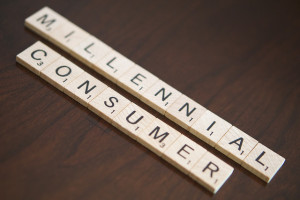Millennials were once considered an enigma generation. They were a new type of consumer that the market was not prepared for. Their digital nativeness and mobile connectivity set them apart from all other generations of consumers. We have come a long way since then. Now, many brands have figured out how to bridge the gap between the digital world and physical consumer culture to create an engaging brand experience that relates to young consumers between the ages of 18 and 34.
The key to understanding Millennials is to adhere to three truths that completely set them apart from previous generations. These truths, while seemingly obvious, have been the make-it or break-it point for brands. Those that adjust their strategies to comply with these truths have seen tremendous success and those that have not have fallen to the wayside.
Millennials grew up during the Great Recession
Millennials are the first population of young adults since the Silent Generation to have come of age during an extreme economic downfall. Just like the Silent Generation, Millennials have adopted an extremely pragmatic point of view when it comes to their consumer behavior. Many Millennials who graduated college in or around 2008 have experienced growing unemployment rates and increasing debt. Now, even though the economy is in a sharp upswing, many young adults are still extremely conscious with their spending and will only engage with brands that they deem useful. For this pragmatic generation, a brand must answer the question, “how will you make my life better?” in order to earn Millennial dollars. This Useful is the New Cool™ mindset has fueled brands like Uber, Amazon, and Apple to stand out among the market noise as ultimate Millennial brands.
during an extreme economic downfall. Just like the Silent Generation, Millennials have adopted an extremely pragmatic point of view when it comes to their consumer behavior. Many Millennials who graduated college in or around 2008 have experienced growing unemployment rates and increasing debt. Now, even though the economy is in a sharp upswing, many young adults are still extremely conscious with their spending and will only engage with brands that they deem useful. For this pragmatic generation, a brand must answer the question, “how will you make my life better?” in order to earn Millennial dollars. This Useful is the New Cool™ mindset has fueled brands like Uber, Amazon, and Apple to stand out among the market noise as ultimate Millennial brands.
Millennials are following a non-linear life map
Previous generations have typically accomplished life milestones in a very linear fashion. There was a socially acceptable set life path: go to school, get a job, get married, buy a house, start a family, repeat as necessary (sounds like the directions on the back of a shampoo bottle). Millennials are not having any of that. While it is true that some Millennials still place value in this old schema, the majority of these young adults do not adhere to the traditional life roadmap. According to research conducted by the Family Room LLC, Millennials are more likely than other generations to bounce around between milestones. A young adult may graduate high school, get married, get a job, start a family and then go back to college or they may go to college, get married, start a family and then get a job.
The key for brands today is to recognize that while they may be talking to young adults in the same age range, they are addressing consumers in a wide range of life stages. This is quickly leading us into an era that requires extremely personalized marketing strategies that do not assume young adults today are all living the same life with the same consumer behaviors. Utilizing consumer data will guide the future of marketing as more brands are using what they know about their consumers to create completely customized and personalized brand experiences.
Millennials are market influencers
This year, Millennials will become the largest generation of consumers living in the U.S. Beyond just the sheer size of this generation, their impact lies in their ability to influence an entire market of consumers who may or may not be their Millennial peers. Whether your brand wants to connect with Boomers or Gen Z, it is important to recognize that many of the behaviors these non-Millennial consumers are carrying out stem from Millennial trends and mindsets. For example, a 50-year-old man is not a Millennial as defined by his age, but he is just as dedicated to wearing his Nike FuelBand every day as his 23-year-old son. Similarly, we are already seeing the impact Millennial parents are having on their Gen Z children.
Consumers below the age of 18 have already proven to behave like Millennials on steroids. While Millennials embraced entrepreneurial brands, Gen Z is becoming a generation of entrepreneurs themselves at a younger age than ever. This hyper-Millennial mindset will continue to take shape as Gen Z begins to develop its own individual buying power.
Overwhelmingly, the Millennial generation is one to watch out for. While they used to seem enigmatic, an understanding of these three truths will help to break the code of what is arguably the most influential generation to date.
For more information about the content landscape, be sure to check out my new book Millennials with Kids, which will be released this August!
